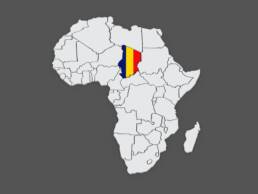On April 10, 2018, the President announced that travel restrictions against the nation of Chad will be removed. The Department of Homeland Security (DHS) has determined that Chad has raised its security standards to meet the baseline U.S. national security requirements.
According to DHS, Chad has made significant progress toward modernizing its passport documents, regularizing processes for routine sharing of criminal and terrorist threat information, and improving procedures for reporting lost and stolen passports. As a result, its nationals will once again be able to receive visas for travel to the U.S.
Specific travel restrictions were implemented through Presidential Proclamation back in September 2017. It was the first time in U.S. history that minimum requirements for international cooperation were established to support U.S. visa and immigration vetting and adjudication procedures. Since then, nationals from Iran, Chad, Libya, North Korea, Somalia, Syria, Venezuela and Yemen have faced heavy restrictions, minus a few exceptions, from traveling to the U.S. The following exceptions apply to nationals from the remaining seven countries, and individuals who qualify will not be subject to any travel restrictions listed in the Presidential Proclamation:
- Any national who was in the U.S. on the applicable effective date described in Section 7 of the Proclamation for that national, regardless of immigration status;
- Any national who had a valid visa on the applicable effective date in Section 7 of the Proclamation for that national;
- Any national who qualifies for a visa or other valid travel document under Section 6(d) of the Proclamation;
- Any lawful permanent resident of the U.S.;
- Any national who is admitted to or paroled into the U.S. on or after the applicable effective date in Section 7 of the Proclamation for that national;
- Any applicant who has a document other than a visa, valid on the applicable effective date in Section 7 of the Proclamation for that applicant or issued on any date thereafter, that permits him or her to travel to the U.S. and seek entry or admission, such as advance parole;
- Any dual national of a country designated under the Proclamation when traveling on a passport issued by a non-designated country;
- Any applicant traveling on a diplomatic (A-1 or A-2) or diplomatic-type visa (of any classification), NATO-1-6 visas, C-2 visa for travel to the U.S., or G-1, G-2, G-3 or G-4 visa; except certain Venezuelan government officials and their family members traveling on diplomatic-type B-1, B-2 or B1/B2 visas;
- Any applicant who has been granted asylum; admitted to the U.S. as a refugee; or has been granted withholding of removal, advance parole, or protection under the Convention Against Torture.
In addition to the exceptions listed above, certain individuals may be eligible for a waiver. For more information, please visit our blog or feel free to contact our office.
Related Posts
January 21, 2026
Success Story: E-2 Employee Visa for Essential Manager
November 12, 2025
TN Success Story: Three-Year Approval for a Chemical Engineer
Ready to have Berardi on your side?
Whether you’re a business looking to hire or a professional hoping to relocate, immigration law can be complicated. But you don’t have to do it alone. Put our experience to work for you.



